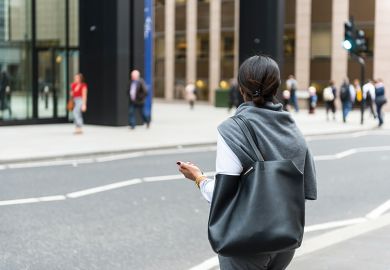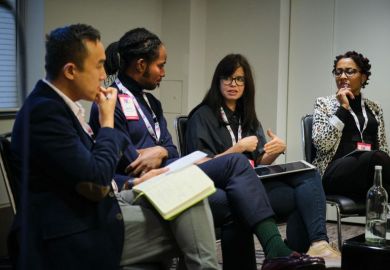A US university has credited its progress on recruiting under-represented scholars to a policy that removes the need to make a hard choice between hiring specialist and diverse staff.
The University of Massachusetts Boston encourages departments that are in the process of hiring specialist scholars to propose a second position to be filled by a distinguished academic from an under-represented group with related expertise.
“If they had a very specific idea of a field they needed and they found someone who was not quite in that area but in an adjacent area, again who would contribute to academic excellence and diversity, we enabled them to make a pitch for that line,” said Katherine Newman, interim chancellor of the institution.
“The energy and the effort required to mount a search is already ongoing, we simply add this additional opportunity.”
The university has set aside a minimum of 20 per cent of its faculty hiring budget for these additional positions and the resources are permanent. If one of the new “diverse hires” leaves, the salary can be reused to enable any department to bid for another position.
Professor Newman said that she implemented a similar policy at the Massachusetts system’s Amherst campus, where she was provost from 2014 to 2017. She then introduced it at Boston after joining as interim chancellor in July 2018.
“I’ve worked at six different universities and watched them struggle with this question of faculty diversity,” she said. “This is the only policy that I’ve ever seen actually move the needle and move it quickly.”
Professor Newman said that most universities assume that problems of diversity are because of bias, but this policy was “based on a different theory about what usually goes wrong” with hiring.
“In tight budget times, very often when a department approaches the provost or the chancellor, it’s armed with the argument that it needs to replace someone who’s retired or that there’s some very specialised field it needs to pursue,” she said.
“Under those circumstances they end up having to juxtapose the value of pursuing fields that they care about very deeply with the value they equally care about which is diversity. And it’s just not always the case that there are opportunities for hiring diverse faculty in very specialised areas because the production of PhDs in those areas may not have been sufficiently filled with diverse candidates.”
She said that her policy “incentivises a broad hiring process and enables departments to realise that they will be able to, at least when we can afford it, achieve both goals”.
“The proof is in the pudding and we have a lot of pudding this year,” she added.
Last year, the university hired eight African Americans, four Latinx scholars, three Asian Americans, two Native Americans and three women in science, technology, engineering and mathematics.
However, Professor Newman said that the policy was “not cost-free [or] sacrifice-free”, adding that the university “had to make hard decisions to carve out a piece of the existing hiring budget to fund these additional opportunities”.
Kalwant Bhopal, director of the Centre for Research in Race and Education at the University of Birmingham, said that the policy was “a very innovative and creative initiative”.
“It not only addresses the lack of diversity in departments head on, it also enables the development of more junior scholars of colour and sets aside funding to do this,” she said.
Register to continue
Why register?
- Registration is free and only takes a moment
- Once registered, you can read 3 articles a month
- Sign up for our newsletter
Subscribe
Or subscribe for unlimited access to:
- Unlimited access to news, views, insights & reviews
- Digital editions
- Digital access to THE’s university and college rankings analysis
Already registered or a current subscriber?








